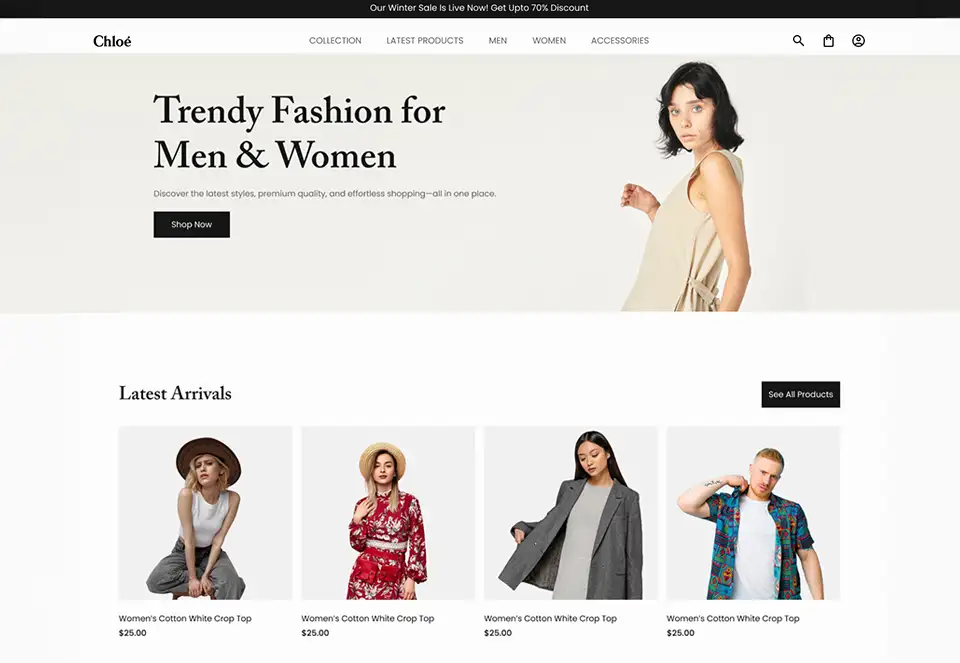In the world of luxury retail, exclusivity and personalization are not just buzzwords; they are the essence of the brand experience. Luxury consumers expect more than just high-quality products; they crave tailored interactions and a deep connection with the brands they support. As the digital landscape continues to evolve, luxury brands are turning to innovative solutions to create these exclusive experiences online. The Salesforce ecommerce platform, particularly through solutions like Storefronts, is at the forefront of this transformation, offering a tailored approach that emphasizes exclusivity and personalized customer interactions—something competitors often miss in their mass market solutions.

The Challenge of Luxury E-commerce: how to make online store
Luxury brands face unique challenges in e-commerce. While platforms like Shopify Plus and Salesforce Commerce Cloud offer robust features, they often cater to a broader audience, leaving luxury brands to adapt these solutions to their specific needs. The key challenge is replicating the sensory and personalized experience of a luxury boutique online. Luxury consumers want to feel like they are part of an exclusive club, with access to limited editions, personalized service, and a brand narrative that resonates with their values.
How Salesforce Ecommerce Platform Addresses Luxury Retail Challenges

The Salesforce ecommerce platform, integrated with solutions like Storefronts, is designed to bridge this gap by leveraging Salesforce’s powerful CRM capabilities to create personalized shopping experiences. Here’s how:
1. Personalized Marketing and Loyalty Programs
The Salesforce ecommerce platform allows luxury brands to use Salesforce data to craft targeted marketing campaigns and loyalty programs that speak directly to individual customers. For instance, a luxury fashion brand can create a VIP program that offers early access to new collections, exclusive events, and personalized styling advice based on a customer’s purchase history and preferences.
Example: A luxury jewelry brand uses Storefronts to send personalized emails to customers who have purchased high-end pieces in the past, inviting them to exclusive preview events for new collections. This not only enhances customer loyalty but also increases the likelihood of repeat purchases.
2. Customizable Storefronts for Brand Identity
Luxury brands are known for their distinct aesthetic and brand identity. Storefronts provides a low-code designer tool that allows brands to tailor their online stores to reflect their unique style and narrative. This ensures that every interaction, whether online or offline, feels consistent and authentic.
Case Study: A luxury home decor brand uses Storefronts to create a digital storefront that mirrors its physical boutiques, complete with high-quality product images and detailed product descriptions that evoke the brand’s commitment to craftsmanship and quality.
3. Seamless Integration with Salesforce CRM
By integrating seamlessly with Salesforce CRM, Storefronts ensures that all customer interactions—whether online, in-store, or through customer service—are unified and accessible. This allows luxury brands to offer a consistent and personalized experience across all touchpoints.
Example: A luxury car manufacturer uses Storefronts to manage customer interactions across its website, social media, and physical dealerships. This integration enables the brand to offer personalized service, such as sending targeted offers based on a customer’s browsing history or previous purchases.
4. Exclusive Access and Events
Luxury brands often create exclusive experiences for their most valued customers. Storefronts can help manage these experiences by providing tools to create and manage private events, limited-edition product releases, and personalized communications that make customers feel part of an elite group.
Case in Point: A luxury fashion brand uses Storefronts to invite select customers to private fashion shows and exclusive product launches. These events not only foster a sense of community but also enhance brand loyalty by making customers feel valued and appreciated.
Competitor Gap: Tailored Solutions for Luxury
While platforms like Shopify Plus and BigCommerce offer robust e-commerce features, they often lack the tailored approach needed for luxury brands. The Salesforce ecommerce platform, with its integration into Salesforce CRM, provides a solution that is specifically designed to meet the unique needs of luxury retail:
- Exclusivity: Storefronts help create exclusive experiences that make customers feel like they are part of a select group, enhancing brand loyalty and retention.
- Personalization: By leveraging Salesforce data, Storefronts enables luxury brands to offer personalized interactions that resonate with individual customers.
- Integration: Seamless integration with Salesforce CRM ensures that all customer touchpoints are unified, providing a consistent brand experience.
Conclusion
In the world of luxury retail, creating exclusive experiences is not just about selling products; it’s about crafting a narrative that resonates with discerning consumers. The Salesforce ecommerce platform, with solutions like Storefronts, offers a tailored approach that emphasizes exclusivity and personalized customer interactions—setting it apart from competitors focused on mass market solutions. By leveraging this platform, luxury brands can unlock their full potential, creating digital experiences that are as luxurious and memorable as their products.



